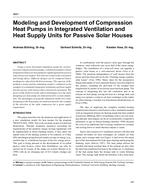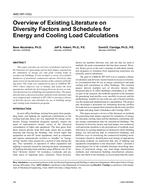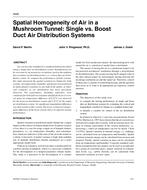The experimental characterization of the concentration of binary liquids used in refrigeration can be accomplished in a variety of methods for pure solutions but recent research has complicated this through the suspension of nanoparticles within these liquids. With the addition of nanoparticles to the liquid conventional techniques need to be modified to account for the presence of nanoparticles. Here we present a measurement technique to determine the concentration of binary liquids containing nanoparticles based on the known density of the base fluid. The method is based upon a density measurement coupled to a theoretical expansion of the volume fraction and Hamilton-Crosser mixing model. The uncertainty analysis of pycnometric density measurement indicated that the developed equation is capable to evaluate the density in a reasonable accuracy range. Experiments are carried out with two binary liquids (LiBr and LiCl solutions) containing two different nanoparticles (silver and iron oxide) starting at three initial volume fractions. In each experiment, the parent solution is made with initial amount of nanoparticles and the concentration of base liquid is changed by adding water which changes the volume fraction of nanoparticles as well. Finally concentrations of new samples are calculated and compared with known data. The method can determine the concentration of any unknown sample with only the initial concentration of base liquid, initial volume fraction of nanoparticles, and density of the nanoparticles a priori with an error +/-2%.
Citation: ASHRAE Papers CD: 2014 ASHRAE Annual Conference, Seattle, WA
Product Details
- Published:
- 2014
- Number of Pages:
- 8
- File Size:
- 1 file , 1.8 MB
- Product Code(s):
- D-SE-14-C018


